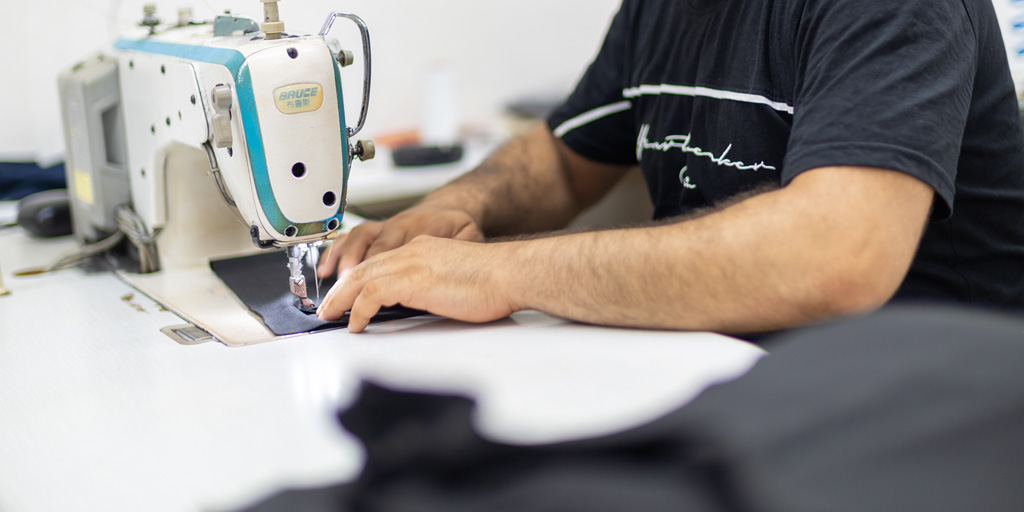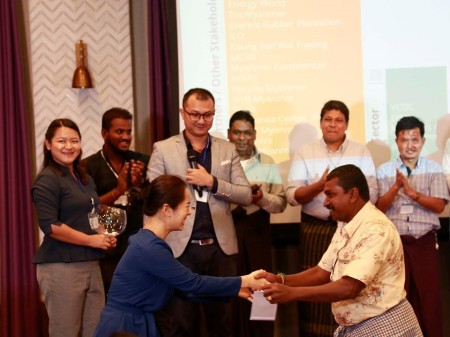As part of its “buy local” campaign, Peace Dividend Marketplace-Haiti recently held its first in a series of workshops for international organizations looking for ways to increase their local procurement of goods and services.
Over the past year, PDM-H has trained more than 500 Haitian businesses in procurement processes and held business networking events with international organizations and local entrepreneurs. But the recent workshop is the first directed specifically toward international organizations, which are showing increasing interest in local procurement, both to save costs and to support the Haitian economy. PDM-H will continue to host the workshops every month.
PDM-H Training Director Fransonnette Prussien noted that most international organizations are not required to buy locally, yet PDM-H has facilitated more than $22 million in transactions between such organizations and Haitian businesses since it began work in Haiti in August 2009.
 “In a sense there’s an informal mandate to buy locally,” explained Alande Pierre of Première Urgence-Aide Médicale Internationale, a workshop participant. “There’s no document that says that all NGOs must buy locally, but we give priority to local suppliers.” Première Urgence is one of more than a hundred NGOs that already use the Peace Dividend Marketplace–Haiti website to look for verified suppliers and to post tenders.
“In a sense there’s an informal mandate to buy locally,” explained Alande Pierre of Première Urgence-Aide Médicale Internationale, a workshop participant. “There’s no document that says that all NGOs must buy locally, but we give priority to local suppliers.” Première Urgence is one of more than a hundred NGOs that already use the Peace Dividend Marketplace–Haiti website to look for verified suppliers and to post tenders.
Pierre explained why his organization attended the workshop: “We’re looking to facilitate ways to find the products we need, products that meet the specific technical specifications we’re looking for. And we want a good working relationship with the suppliers that have the capacity to meet our needs.”
The “buy local” trend among aid organizations is not unique to Haiti. The movement gained international momentum last month when the UN Security Council, in its official recognition of the establishment of South Sudan, urged the Secretary-General “to seek opportunities to deliver early peace dividends by utilizing local procurement.”
“The ‘buy local’ policy goes hand-in-hand with the aid provided by international organizations,” explained Ruth Augustin of Caritas Suisse. “The money that is spent in Haiti represents an added benefit to build the country and strengthen the economy. So it achieves two goals simultaneously. By the time they leave, the organizations have contributed to the economy in such a way that future generations will be able to continue their work and benefit in a sustainable way from what they achieved in the five or ten years they were here.”
Other participants in the procurement workshop at PDM-H headquarters in Tabarre included the Lutheran World Federation and CBM. The session focused on identifying qualified Haitian suppliers, reviewing procurement from the perspective of both buyer and seller, and examining ways to adapt procurement processes to the strengths and weaknesses of the local marketplace. Discussions covered issues ranging from payment procedures to penalty clauses, business access to credit, the reluctance of local firms to provide financial disclosure information, and negotiations with suppliers.
PDM-H’s Prussien urged participants to work closely with potential suppliers to bring them up to speed on their specific procurement procedures. “You know your objectives. You have to orient your sellers to your budget and your procedures,” she explained.
Tags : NGOs PDM-H team Procurement
More from this author -
Latest News -

GIZ Works to Provide Shelters in Leogane / GIZ travaille pour construire des shelters à Léogane
NGOs Shelters PDM-H

Coming Home to Build A Solid Foundation / Kiskeya : retour au pays pour construire de solides fondations
#diaspora #earthquake construction entrepreneur Haiti



